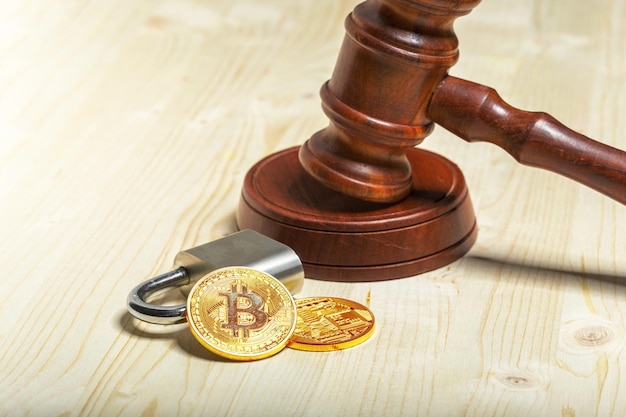Universal Basic Income (UBI): A new path for financial security

Anúncios
Universal Basic Income (UBI) is a financial program that provides all citizens with an unconditional, regular payment to ensure economic security and address inequality in an increasingly automated world.
Universal Basic Income (UBI) has emerged as a hot topic in discussions about economic reform. Many wonder how providing a guaranteed income affects societal dynamics and individuals’ lives. Are you curious about its potential benefits and challenges?
Understanding universal basic income (UBI)
Universal Basic Income (UBI) is a revolutionary concept that suggests providing all citizens with a regular, unconditional sum of money, regardless of other income. This innovative idea aims to ensure that everyone meets their basic needs and can thrive in society.
The idea of UBI has gained traction globally, with various evaluations and discussions surrounding its implementation. Some countries have even conducted pilot programs.
The Goals of UBI
The main objectives of UBI include:
Anúncios
- Reducing poverty and inequality.
- Encouraging economic stability and consumer spending.
- Providing individuals with greater freedom to pursue education, entrepreneurship, or caregiving.
Supporters argue that UBI can empower people by giving them financial security. Critics, however, question its affordability and the implications on the workforce.
For a detailed exploration of the concept and its implications, you can visit the Basic Income Earth Network.
The economic impact of UBI
The economic impact of Universal Basic Income (UBI) is a crucial area of study. Proponents argue that it can stimulate the economy by providing individuals with spending power.
When people have guaranteed income, they are more likely to spend on essentials. This, in turn, can lead to increased demand for goods and services, benefiting businesses.
Potential Benefits to the Economy
- Enhanced consumer spending, leading to economic growth.
- Reduction in poverty rates, which can decrease government spending on social welfare programs.
- Increased stability during economic downturns, as individuals have a safety net.
Furthermore, studies suggest that UBI could lead to a healthier population overall, as financial security can lead to better mental and physical health. For a deeper dive into the economic implications, check out this article from the National Bureau of Economic Research.
Case studies from countries with UBI

Case studies from various countries provide essential insights into the impacts of Universal Basic Income (UBI). These real-world examples can help us understand how UBI has been implemented and its effects on society.
Several nations have launched pilot programs that shed light on this economic strategy.
Notable Case Studies
- Finland: In a recent experiment, Finland provided a monthly stipend of €560 to 2,000 unemployed citizens. Researchers found improvements in mental well-being and a significant boost in life satisfaction.
- Canada: The Mincome project in the 1970s offered basic income to low-income residents in Dauphin, Manitoba. The results showed a drop in hospital visits and overall health improvements.
- Spain: In 2020, Spain introduced a form of UBI targeting its poorest citizens. Early reports suggest a reduction in poverty rates and increased consumer spending.
For a deeper understanding of these case studies, visit the Basic Income Earth Network for comprehensive resources and detailed reports.
Challenges and criticisms of UBI
While Universal Basic Income (UBI) has promising benefits, it also faces several challenges and criticisms that need to be addressed. Understanding these concerns is essential for evaluating the viability of UBI.
Critics argue that implementing UBI could lead to significant financial strain on governments and taxpayers.
Main Challenges and Criticisms
- Cost: Funding UBI programs could require substantial tax increases or reallocating existing funds. Critics question whether governments can maintain such expenditures long-term.
- Work Incentives: Some argue that providing a guaranteed income might discourage people from seeking employment. They worry this could lead to a decrease in the labor force.
- Inflation: There are concerns that UBI could lead to inflation, as increased consumer spending might drive up prices, negatively impacting purchasing power.
Examining these challenges helps to provide a balanced view of UBI. For more information on UBI criticisms, you can explore insights from the Economist.
Future prospects for universal basic income
The future prospects for Universal Basic Income (UBI) are being discussed in various parts of the world. As economic inequalities grow, more people advocate for UBI as a solution to provide financial security.
Many experts believe that as automation increases, UBI could become essential. This could help offset job losses in various sectors.
Key Factors Influencing UBI’s Future
- Technological Advancements: As technology changes the job landscape, UBI could be a way to support those affected by automation.
- Political Support: The growth of political movements advocating for UBI can influence its potential implementation worldwide.
- Public Perception: Increasing public awareness and acceptance of UBI could lead to successful trials and eventual adoption in more regions.
To learn more about ongoing discussions and research on the future of UBI, visit the International Labour Organization.
Universal Basic Income (UBI) presents an exciting possibility for addressing economic inequality. While there are challenges and criticisms, many believe that UBI could be a vital solution as the world changes. Public acceptance and political support will be key in shaping its future. As more studies and pilot programs emerge, we may see how UBI can transform lives across the globe.
FAQ – Frequently Asked Questions about Universal Basic Income (UBI)
What is Universal Basic Income (UBI)?
Universal Basic Income (UBI) is a program that offers all citizens a regular, unconditional sum of money to ensure basic financial security.
How could UBI impact the economy?
UBI can stimulate consumer spending, reduce poverty, and provide economic stability, especially during downturns.
What are some criticisms of UBI?
Critics argue that UBI may lead to high costs for governments, discourage work, and potentially cause inflation.
Which countries have implemented UBI trials?
Countries like Finland and Canada have conducted UBI trials, providing valuable insights into its effects on society.



